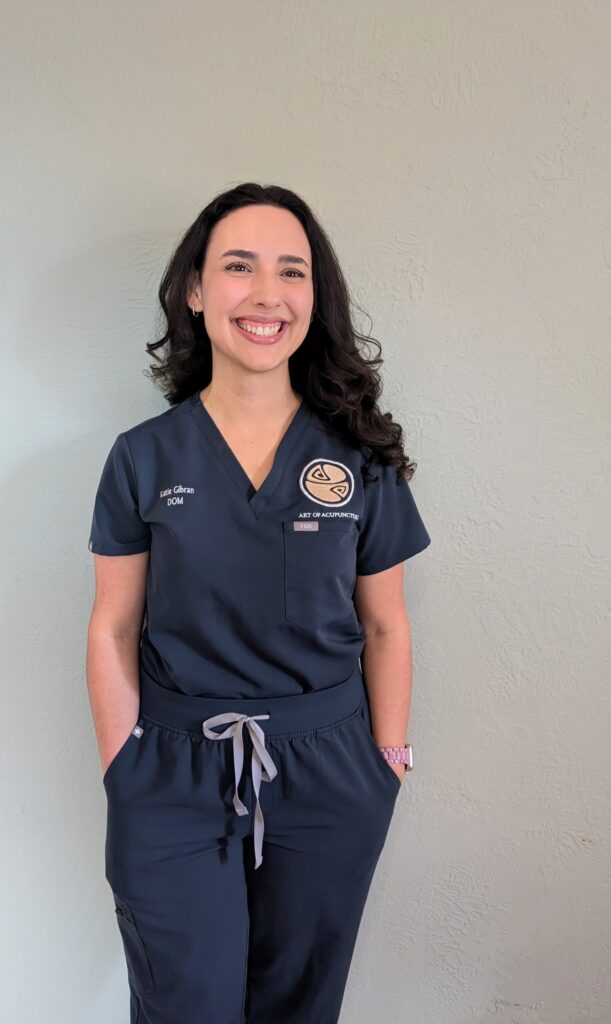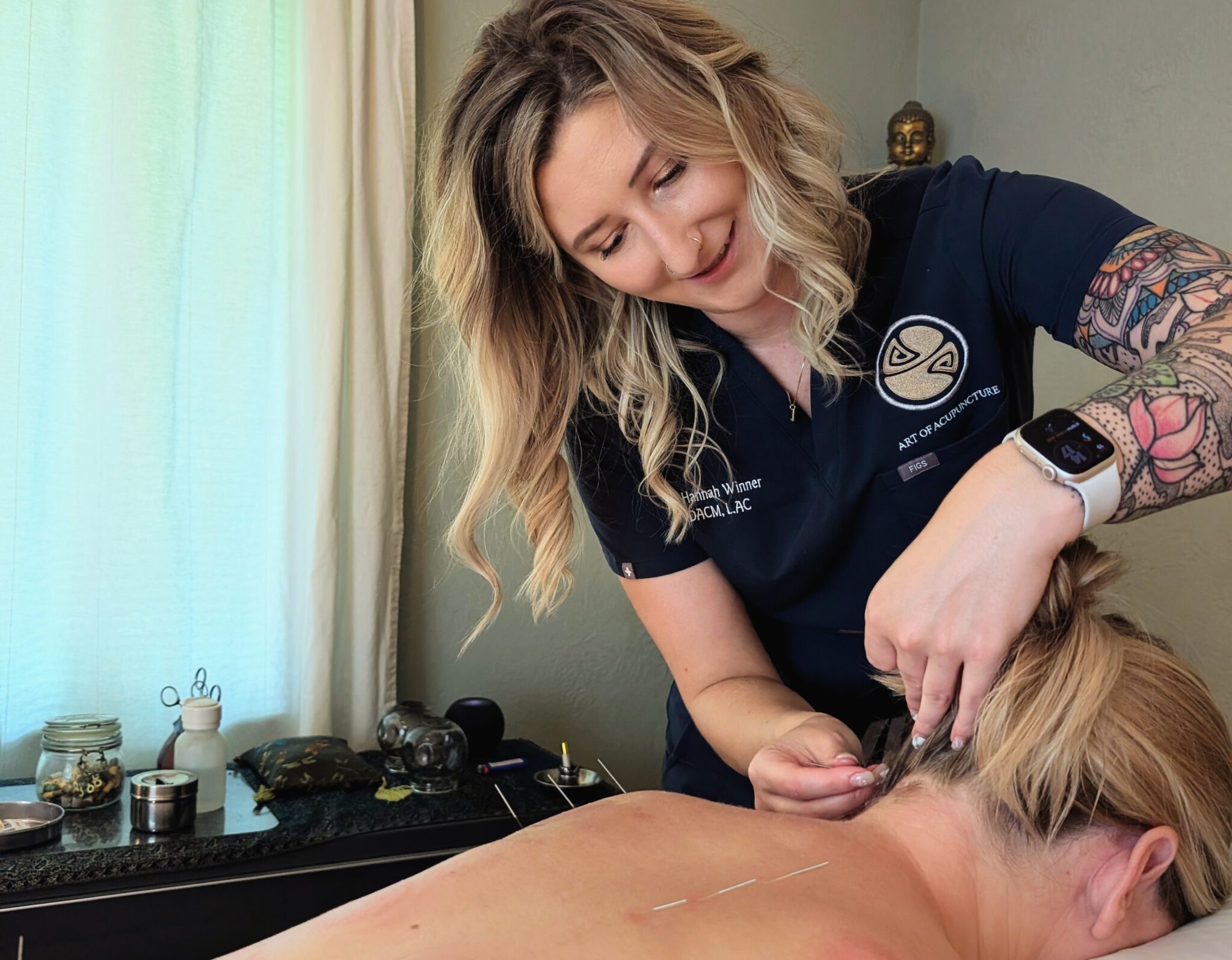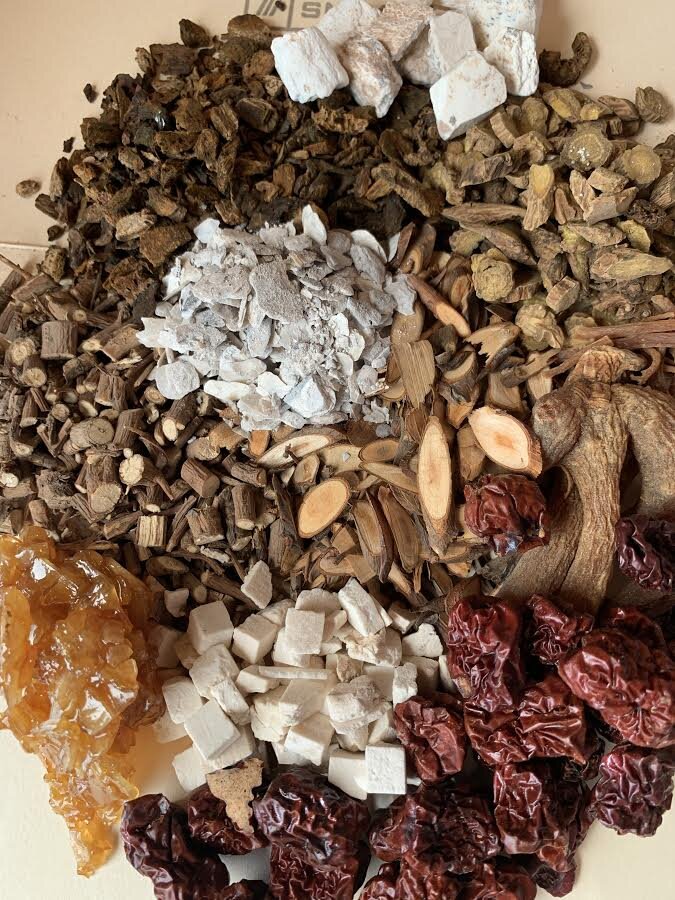
Acupuncture Point Injection Therapy
APIT & Trigger Point Injections in St. Petersburg, FL

Contact Us
Table of Contents
× Apit & Trigger Point Injections Acupuncture Point Injection Therapy Options at AOA From The Experts APIT vs. Trigger Point Injections Acupuncture Point Injection Therapy Use Cases What Our Clients Say Indications for Acupuncture Point Injections Benefits of Acupuncture Point Injection Therapy How to Prepare for Acupuncture Point Injection Therapy What to Expect During the APIT Treatment Our Acupuncturists Frequently Asked Questions Book an Acupuncture Injection Therapy Session Featured Blog PostsAPIT & Trigger Point Injections
Acupuncture point injection therapy, also known as acupoint injections, refers to a medical procedure where various substances are injected directly into specific points or regions in the body to alleviate pain, promote healing, or address other health concerns. The nature of the substance being injected can vary, depending on the condition being treated, and may include vitamins, herbal pain relief, or other homeopathic remedies.
Candidates for Acupuncture Injection Therapy
Injection therapy is not universally suitable for everyone. Ideal candidates often have chronic musculoskeletal or joint pain, especially when that pain can be traced back to specific, localized points. Patients with chronic tension headaches, fibromyalgia, or myofascial pain syndrome, which is characterized by pain in specific regions, or acupuncture points, in muscles, can be particularly good candidates. Additionally, those with injuries that aren’t responding well to other therapies or have a chronic nature might also benefit.
Vitamin Shots At AoA
Vitamin B12 (Methylated)
A B12 injection is a medical treatment used to address vitamin B12 deficiency, which can lead to anemia, neurological issues, and fatigue. It is also commonly administered to support energy levels, nerve function, and red blood cell production in individuals with absorption disorders or specific medical conditions.
Traumeel
Trammel injections are typically used to manage pain and inflammation associated with conditions like osteoarthritis or soft tissue injuries like sprains or joint subluxations. They may also promote joint healing and mobility by delivering anti-inflammatory or regenerative substances directly to the affected area.
Zeel
Zeel injections are used to support the treatment of bone fractures, slow-healing bones, and bone pain by promoting tissue regeneration and reducing inflammation. They are also utilized for managing degenerative arthritis, spinal conditions, and joint stiffness to enhance mobility and relieve discomfort.
Arnica
Arnica injections are typically used to alleviate muscle pain, reduce bruising, and minimize swelling after falls, minor accidents, or overdoing it at the gym. They work by supporting the body’s natural healing processes and decreasing inflammation in affected areas.
Facial Injections (Guna Made)
Facial injections made by Guna are used to rejuvenate the skin by improving elasticity, hydration, and collagen production. They are often utilized for reducing fine lines, wrinkles, and signs of aging while promoting a more youthful, radiant appearance.
Glutathione
Glutathione injections are used to support detoxification processes, improve egg and sperm quality for fertility purposes, and address certain skin conditions. They enhance cellular health by reducing oxidative stress and promoting overall well-being.
Engystol
Engystol injections are used to support the immune system and help to managing colds, flu, viruses, and fever. They can also be utilized as a preventative protocol, similar to a flu vaccine, to enhance resistance to viral infections.
Calmvalera
Calmvalera injections are used to address restlessness, sleep disorders such as insomnia, depression, and mental exhaustion. They help promote relaxation, improve sleep quality, and support emotional well-being by balancing the nervous system.
Lymphomyosot
Lymphaden injections are used to treat swollen lymph nodes, lymphatic edema, and other lymphatic conditions. They support lymphatic drainage, reduce inflammation, and enhance the body’s detoxification processes.
Gelsemium
Gelsemium injections are used to manage painful nerve conditions such as postherpetic neuralgia, trigeminal neuralgia, and sciatica. They work by alleviating nerve pain and reducing associated inflammation and discomfort.
Spascupreel
Spascupreel injections are used to relieve muscle cramps and spasms in organs such as the stomach, gallbladder, uterus, and urinary tract. They are also effective for managing painful periods, general muscle spasms, and symptoms of fibromyalgia.
Vitamin D3
An essential nutrient that contributes to the health of our musculoskeletal, nervous, immune, & cardiovascular systems. These injections can be beneficial to support mood, energy level, bone & nerve health, efficient calcium absorption, & healthy immune function.
Injection therapy is not universally suitable for everyone. Ideal candidates often have chronic musculoskeletal or joint pain, especially when that pain can be traced back to specific, localized points. Patients with chronic tension headaches, fibromyalgia, or myofascial pain syndrome, which is characterized by pain in specific regions, or acupuncture points, in muscles, can be particularly good candidates. Additionally, those with injuries that aren’t responding well to other therapies or have a chronic nature might also benefit.
From The Experts
“APIT blends the best of both worlds—time-honored acupuncture techniques with the immediate effects of modern injectables. It’s not just about symptom relief; it’s about enhancing your body’s natural healing processes in a profound way that you can feel immediately.”
– KECIA FOWLER, DOM, AP
Apit Vs. Trigger Point Injections
This therapy is rooted in Traditional Chinese Medicine (TCM). Acupuncture traditionally involves inserting thin needles into specific points (acupuncture points) to balance the body’s energy flow or “Qi.” In acupuncture point injection therapy (APIT), not only are needles inserted into these acupuncture points, but therapeutic agents are also injected to enhance the treatment’s effects. Trigger point injections are based in western medicine. A trigger point is a taut, painful band of muscle fibers that can disrupt function and cause referred pain point injections involve inserting a needle directly into these painful spots to introduce a therapeutic agent to alleviate the pain and relax the muscle. This treatment can be particularly effective for conditions like myofascial pain syndrome, tension headaches, and certain forms of chronic pain where these acupuncture points contribute significantly to the patient’s discomfort. The primary purpose of homeopathic injections is to combine the benefits of acupuncture with the therapeutic effects of the injected agents, addressing both energy imbalances in TCM terms and physical or biochemical issues. Needles are inserted into traditional acupuncture points, which are specific points mapped out on the body’s meridians or energy pathways. The injected substances can vary but often include vitamins, saline, homeopathic remedies, or Chinese herbal extracts. The choice of substance depends on the condition being treated and the principles of TCM. Commonly used trigger point injection substances include local anesthetics (like lidocaine), saline, or corticosteroids. These agents aim to numb the area, reduce inflammation, or both. Practitioners usually require specific training and certification in both injection and acupuncture therapy, often regulated by acupuncture or TCM boards. APIT is used to treat a wide range of conditions, from pain to internal disorders, based on TCM diagnostic principles.

While both therapies involve injection at specific points in the body, acupuncture point injection therapy is grounded in Traditional Chinese Medicine and targets acupuncture points to balance body energy. In contrast, trigger point injections stem from Western medicine practices and directly target muscle knots to alleviate pain. We utilize both APIT and Trigger Point injections as warranted at Art of Acupuncture.
Acupuncture Point Injection Therapy Use Cases
It is essential to recognize that vitamin injections are not suitable for everyone, and there can be contraindications based on a person’s medical history or the nature of their condition. As such, it should be administered by trained professionals after a thorough assessment of the patient. Here are some potential use cases for point injection therapy in St. Petersburg, FL.
Joint Pain & Arthritis
Injections into or around a joint can help reduce inflammation and provide pain relief.
Tendinitis and Bursitis
Inflammation of tendons (tendinitis) or bursa (bursitis) can be treated by injecting anti-inflammatories directly at the site.
Neuralgia
Pain resulting from nerve irritation might benefit from injections of nerve blocking agents.
Osteoarthritis
Degenerative joint diseases can sometimes be managed by injecting therapeutic agents to reduce pain and inflammation.
Discogenic Pain
Some types of back pain originating from the intervertebral discs can be treated with injections.
WHAT OUR CLIENTS SAY
Indications for Acupuncture Point Injections
Acupuncture point injection therapy (APIT) combines traditional acupuncture with the injection of therapeutic substances into specific acupuncture points. The therapy aims to amplify the therapeutic effects by merging the benefits of acupuncture with the administered substances. Here are some of the primary indications for vitamin injections:
Musculoskeletal Disorders
- Pain Management: APIT can be used to treat various types of pain, including acute and chronic pain, stemming from musculoskeletal issues.
- Arthritis: Both osteoarthritis and rheumatoid arthritis sufferers might find relief from inflammation and pain through APIT.
- Myofascial Pain and Fibromyalgia: Patients with these conditions might benefit from the dual action of acupuncture and the therapeutic effects of the injected substance.


Neurological Disorders
- Migraine and Tension Headaches: APIT can help reduce the frequency and severity of these headaches.
- Neuropathies: Conditions such as diabetic neuropathy or other peripheral neuropathies might find symptom relief with APIT.
Respiratory Issues
- Asthma and Allergies: APIT can help in managing respiratory conditions by reducing inflammation and improving lung function.
- Bronchitis: Some chronic bronchitis patients might benefit from the immunomodulatory effects of certain injectables.


Digestive Disorders
- Irritable Bowel Syndrome (IBS): APIT might help regulate digestive function and alleviate IBS symptoms.
- Chronic Constipation: Acupuncture combined with the effects of injectables might stimulate bowel movements and improve gut function.
Gynecological & Reproductive
- Menstrual Disorders: Conditions like dysmenorrhea (painful periods) or irregular menstrual cycles might be managed with APIT.
- Menopausal Symptoms: Hot flashes, night sweats, and other menopausal symptoms can be alleviated using APIT.


Mental and Emotional Well-being
- Stress and Anxiety: By targeting specific acupuncture points related to relaxation and mood regulation, APIT can offer relief from stress and anxiety.
- Depression: Some patients with mild to moderate depression might find APIT beneficial, especially when combined with other treatments.
Skin Conditions
- Acne and Eczema: Some skin conditions might respond positively to APIT, especially if the underlying cause is inflammatory or immune-mediated.
- Facial Rejuvenation: Some practitioners use APIT as an aesthetic treatment for reducing wrinkles, tightening skin, and promoting a youthful appearance.


Additional Uses
- Immune Boosting: APIT can sometimes be used as an adjunctive treatment to improve immune system function, especially with the injection of specific vitamins or herbal extracts.
- Chronic Fatigue: Some patients with persistent fatigue, not explained by other medical conditions, might benefit from the revitalizing effects of APIT.
- Addictions: APIT can also be used as a supportive treatment in addiction therapy, especially in cases of tobacco or opioid dependence.
Benefits of Acupuncture Point Injection Therapy
Acupuncture Point Injection Therapy (APIT) combines the principles of traditional acupuncture with the therapeutic benefits of injectable substances. Proper training, experience, and knowledge of both acupuncture and injection techniques are crucial for safe and effective treatment. This integrative approach offers several benefits:
Enhanced Efficacy
Combining the benefits of acupuncture with therapeutic substances can amplify the therapeutic effects, making treatments more potent than traditional acupuncture alone.
Rapid Pain Relief
For many patients, APIT provides faster relief from pain compared to other modalities, particularly for musculoskeletal complaints.
Reduced Inflammation
Certain injectables, like homeopathic solutions or vitamins, can reduce inflammation at the targeted points, further alleviating pain and promoting healing.
Muscle Relaxation
APIT can lead to immediate relaxation of muscle knots or spasms, especially when targeting specific trigger points.
Improved Circulation
By stimulating acupuncture points and introducing therapeutic agents, APIT can enhance blood flow to specific regions, promoting healing and nutrient delivery.
Mental and Emotional Well-being
Beyond physical benefits, APIT can help in managing stress, anxiety, and mood disorders by targeting acupuncture points linked to emotional health.
Flexibility in Treatment
APIT allows for a range of injectable substances, including vitamins, homeopathic solutions, saline, and herbal extracts, providing tailored treatments based on individual needs.
Long-lasting Effects
The effects of APIT can be more sustained than some other treatments, reducing the frequency of treatments needed for chronic conditions.
Holistic Approach
APIT addresses both the physical symptoms and the underlying imbalances in the body’s energy or Qi, offering a more holistic approach to health and wellness.
Reduced Reliance on Pharmaceuticals
For some patients, APIT can reduce the need for pain medications or anti-inflammatories, providing a natural alternative with fewer side effects.
Boosted Immunity
Certain injectables used in APIT can stimulate the immune system, making it a potential preventive measure against infections or illnesses.
Rejuvenating Effects
Some practitioners use APIT for aesthetic purposes, including facial rejuvenation. The therapy can promote skin tightening, wrinkle reduction, and a youthful appearance.
Tailored Treatments
Since APIT can target specific acupuncture points related to particular conditions or symptoms, it allows for highly individualized treatments.
How to Prepare for Acupuncture Point Injection Therapy
Before undergoing Acupuncture Point Injection Therapy (APIT), it’s essential to relay your complete medical history and any current medications to your practitioner. On the day of your treatment, it’s recommended to have a light meal a few hours prior and to avoid both alcohol and caffeine for at least 24 hours. Comfort is crucial, so opt for loose, easily accessible clothing. For hygiene purposes, ensure that the treatment areas are clean, but it’s best to skip lotions or oils on those areas for the day. If it’s your first time receiving APIT, it might be beneficial to approach the session with a calm mindset and ask your practitioner for a brief overview to set your expectations. Additionally, consider scheduling your session at a time when you can relax afterward, allowing your body to respond optimally to the therapy.

What to Expect During The APIT Treatment

During a homeopathic injection session, patients can expect a fusion of traditional acupuncture with modern injection techniques. The practitioner will begin by identifying specific acupuncture points tailored to the patient’s needs. Once these points are pinpointed, rather than inserting traditional acupuncture needles, the practitioner will use fine needles to inject therapeutic substances, such as vitamins or homeopathic solutions, directly into the selected points. The injection process is generally swift, and while some might experience a slight pinch or pressure upon needle insertion, the overall procedure is designed to be as minimally invasive and comfortable as possible.
Our Acupuncturists

Kecia
Diplomate of Oriental Medicine, Acupuncture Physician, Certified Facial Rejuvenation, Certified APIT, Certified Zero Balance Practitioner, Facial Rejuvenation Certified

Hannah
Diplomate of Oriental Medicine, Doctor of Acupuncture & Eastern Medicine, Certified Fellow of the Acupuncture and TCM Board of Reproductive Medicine

Katie
Diplomate of Oriental Medicine, Acupuncture Physician, Certified APIT, Fertility- Natural & IVF, Pediatrics, Internal Medicine, Chronic Illness and Pain, Microneedling

Nikita
Diplomate of Oriental Medicine, Acupuncture Physician, Certified APIT, Advanced Certificate in Facial and Cosmetic Acupuncture
Frequently Asked Questions
Most patients report that acupuncture point injection therapy feel similar to traditional acupuncture, with a slight pinch or pressure upon needle insertion. The discomfort is generally minimal, and the practitioner will aim to make the procedure as comfortable as possible.
After APIT, it’s common to feel a sense of relaxation or relief in the targeted areas. Some patients might experience temporary redness, swelling, or minor bruising at the injection sites. It’s advised to avoid strenuous activity immediately after the procedure and to follow any specific aftercare instructions provided by the practitioner.
Potential side effects, though rare, can include allergic reactions to the injected substances, infection at the injection site, and minor bleeding or bruising. Always ensure the therapy is conducted by a trained and certified practitioner to minimize risks.
APIT may not be suitable for individuals with certain allergies, especially if related to the injectable substances. Those with blood-clotting disorders, those on anticoagulant medications, pregnant women, or individuals with compromised immune systems should consult with their healthcare provider before undergoing APIT.
Many patients report immediate relief or improvement after a session, especially in cases of pain management. However, the onset of effects might vary depending on the condition being treated and the substances used.
The duration of the effects can vary based on the individual and the condition being treated. Some experience relief for a few days, while others might benefit for weeks. Regular sessions may be recommended for chronic conditions to maintain the therapeutic benefits.
Hang Out With Us!
Our Office
2941 5th Avenue North St. Petersburg, FL 33713
Hour of Operation
Monday – Thursday: 8:30am – 6:30pm
Friday – Saturday: 9:00am – 5:00pm


